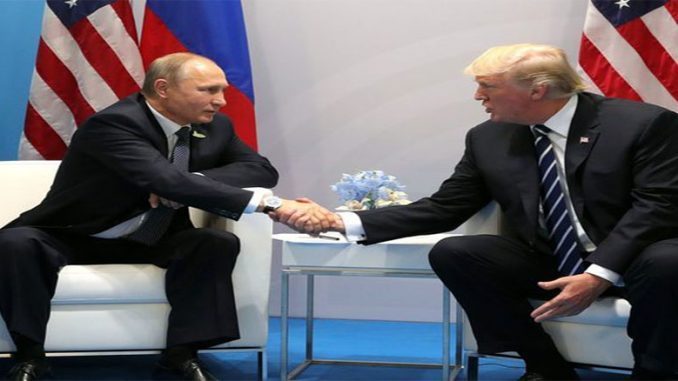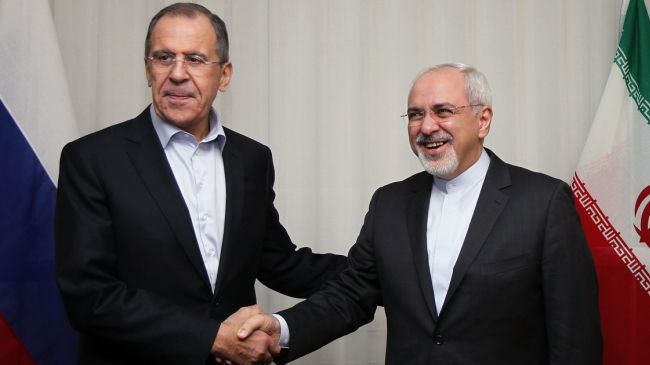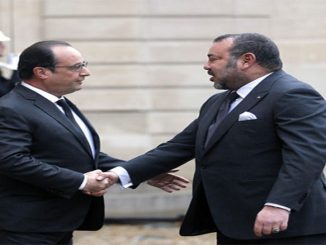
One of the most important aspects of the G20 Summit was the meeting between U.S. President Donald J. Trump and his Russian counterpart Vladimir Putin. Up to now, the two leaders have had to communicate indirectly, sometimes through the media, but finally they had the opportunity to exchange ideas directly. It seems the meeting saw fruitful and critical decisions being taken.
The Russian and American presidents have agreed on the terms of the existing “controlled rivalry” between their countries. That means the rivalry exists but things are not as bad as they were during the Cold War, that’s why we say “controlled.”
They have agreed, for example, that the governing styles of third countries don’t interest them. In other words, they will not choose their allies only from a list of democratic countries. However, they have a red line: if a country adopts a radical religious way of action, they will intervene. They also seem to have agreed on their countries’ respective influence zones around the globe. The deal includes the promise of not letting any other great power come into the game, especially in the Middle East. They have decided to work together to preserve their leading role regarding energy geopolitics.
The two leaders have also agreed to see each other regularly, as dialogue is essential to maintaining this controlled rivalry. Even though their respective publics don’t always agree with that, the two presidents will have to build a relationship based on mutual trust.
The U.S. and Russian presidents naturally discussed Syria, as well. The U.S. seems to have accepted that Assad will have to remain in power, at least for now. Russia will decide when Assad should leave, and the U.S. will wait until that day. In exchange, Russia has accepted that Iran’s influence in the Middle East should be weakened. The two leaders also probably discussed the future of the Kurds, as well. They probably agreed that it is too early to have an independent Kurdish state.
Putin and Trump are trying to carve out a win-win situation regarding the Syrian civil war. They have decided to impose a cease-fire in Syria’s southwestern regions. These areas are very close to Jordan, Israel and Lebanon, therefore, one could infer that the two leaders think these countries’ stability is of the outmost importance to them. They may soon announce a no-fly zone and even a buffer zone for the same area. In brief, they want to make sure that the Assad regime doesn’t control this highly strategic zone.
Turkey has never opposed a no-fly zone or the buffer zone idea, yet Ankara asked that that zone be established in northern Syria. Nevertheless the U.S. didn’t think it was necessary as they thought the northern regions of Syria were secure enough. The northern borders of Syria are still not a priority for the American administration, but that doesn’t mean the U.S. will accept Kurdish independence there. The Syrian Kurdish groups, which are indeed not Kurdish but terrorist organizations, may be useful today for the U.S., as they fight Daesh, but if they try one day to declare their independence, Washington will oppose it… for the simple reason that Russia is opposing it.
Russia doesn’t want a Kurdish state because it believes it will only exacerbate American influence in the region. The U.S. must take into account Russian concerns, because this is how controlled rivalries function. Russia has made it clear that it doesn’t want a Kurdish state by mentioning Turkey: Putin has said that Turkey must be included in the decisions on Syria, especially on the establishment of no-fly zones. This is another way of saying that Russia wants to be sure that the emergence of a Kurdish state will be prevented.
It would be interesting to know whether the PKK had one eye on the Trump-Putin meeting while carrying out its latest bloody attacks.
*Beril Dedeoğlu, born in 1961, is a Turkish academic who served as the Minister of European Union Affairs in the interim election government led by Prime Minister Ahmet Davutoğlu between 22 September and 17 November 2015. (Published in Daily Sabah on Wednesday, July 11, 2017)




